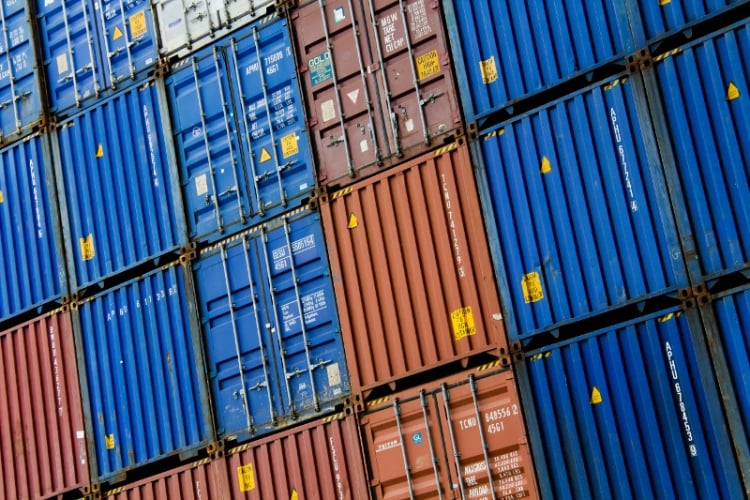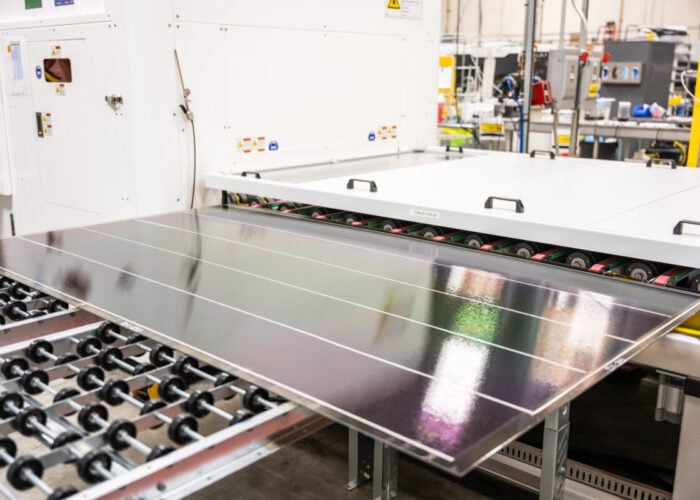
The US Department of Commerce (DOC) is to investigate alleged circumvention of antidumping and countervailing duties (AD/CVD) by solar manufacturers in Cambodia, Malaysia, Thailand and Vietnam.
The decision to investigate follows a petition filed last month by US manufacturer Auxin Solar, and the DOC will now begin country-wide proceedings to determine whether or not solar cells and/or modules made in the Southeast Asian nations use parts originating from China, flouting AD/CVD tariffs.
Unlock unlimited access for 12 whole months of distinctive global analysis
Photovoltaics International is now included.
- Regular insight and analysis of the industry’s biggest developments
- In-depth interviews with the industry’s leading figures
- Unlimited digital access to the PV Tech Power journal catalogue
- Unlimited digital access to the Photovoltaics International journal catalogue
- Access to more than 1,000 technical papers
- Discounts on Solar Media’s portfolio of events, in-person and virtual
However the decision has attracted the immediate ire of some in the US solar industry who have said it “imperils” the progress of clean energy in the US.
The investigation
In a memo addressed Friday 25 March 2022, the DOC’s team leading on antidumping and countervailing duty operations recommended that the department investigate whether imports of solar cells and/or modules originating from Cambodia, Malaysia, Thailand and Vietnam are circumventing tariffs on Chinese products.
The memo goes on to cite evidence submitted by Auxin Solar to substantiate its petition, including numerous reports regarding the origin of solar products, the nature of solar wafer, cell and module production and the levels of investment into R&D and manufacturing – and how they compared geographically – from some of the industry’s largest manufacturers.
In opposition to the initiation, the memo recorded suggestions made by parties that Auxin Solar had failed to “identify adequately the merchandise… circumventing the orders”, however this was dismissed by the DOC’s AD/CVD operations team.
The memo also confirms that Hanwha Q CELLS’ US and Malaysia-based entities argued that any resulting inquiry from the petition should be conducted on a company-specific, rather than a country-wide basis, as Auxin Solar had requested. This request was also dismissed, with the DOC finding that Auxin had provided sufficient evidence under regulation 19 CFR 351.226 to request a country-wide inquiry.
In a statement issued today, the Solar Energy Industries Association (SEIA) said the decision by the DOC to consider tariffs of 50 – 250% for solar products entering the US would be a “misstep” that would have a “devastating impact on the US solar market”, especially against a backdrop of climbing module prices.
SEIA further claimed the US industry is feeling the effects of a similar petition raised last November but ultimately dismissed, arguing it to be a contributing factor to a 19% fall in near-term solar deployment forecasts in the US.
Taking up the case will “have a chilling effect on the solar industry”, the trade body said.
“Today’s decision responds to the self-interests of one company and will lead to more market volatility and job losses. Additional tariffs will cause the loss of 70,000 American jobs, including 11,000 manufacturing jobs. According to Wood Mackenzie, solar deployment will crater by 16 Gigawatts annually if tariffs are imposed,” the statement reads.
“Today’s decision responds to the self-interests of one company and will lead to more market volatility and job losses.”
Abigail Ross-Hopper, CEO, SEIA
What happens next?
The DOC has said questionnaires will be sent to companies in Cambodia, Malaysia, Thailand and Vietnam regarding their shipments of cells and modules to the US and the origin of inputs for those shipments. The memo warns that failure to respond may result in the application of partial or total facts available from the investigation. Responses to the questionnaires will help the DOC assess facts in the case and, ultimately, educate not only its verdict but also prospective tariff rates.
The investigation itself could last up to a year, after which the DOC will conclude whether or not it has evidence of circumvention. Preliminary findings of the investigation are to be published on or before 30 August 2022, at which time a preliminary duty figure will also be announced.
The earliest a final decision could feasibly be announced is 26 January 2023, however this could still be extended until 1 April 2023.
Should Commerce rule in favour of the petition, tariffs of up to 250% could be applied to solar cells and/or modules originating from the countries in question and applied retroactively. Documents filed by Commerce state that tariffs can be retroactively applied from 4 November 2021, meaning modules imported from named countries since that date could be liable for tariffs. The date at which tariffs come into force will be set by Secretary of State Gina Raimondo.
SEIA has, however, called upon Commerce to throw out the investigation. “Solar prices are increasing, federal climate legislation is stalled, and trade restrictions are now compounding. Commerce should quickly end this investigation to mitigate the harm it will cause for American workers and our nation’s efforts to tackle climate change,” it said in a statement.
Shares in US-based thin film solar manufacturer First Solar, regarded as one of the main potential beneficiaries of tariffs resulting from the DOC’s investigation, rose by around 6% in trading today.







